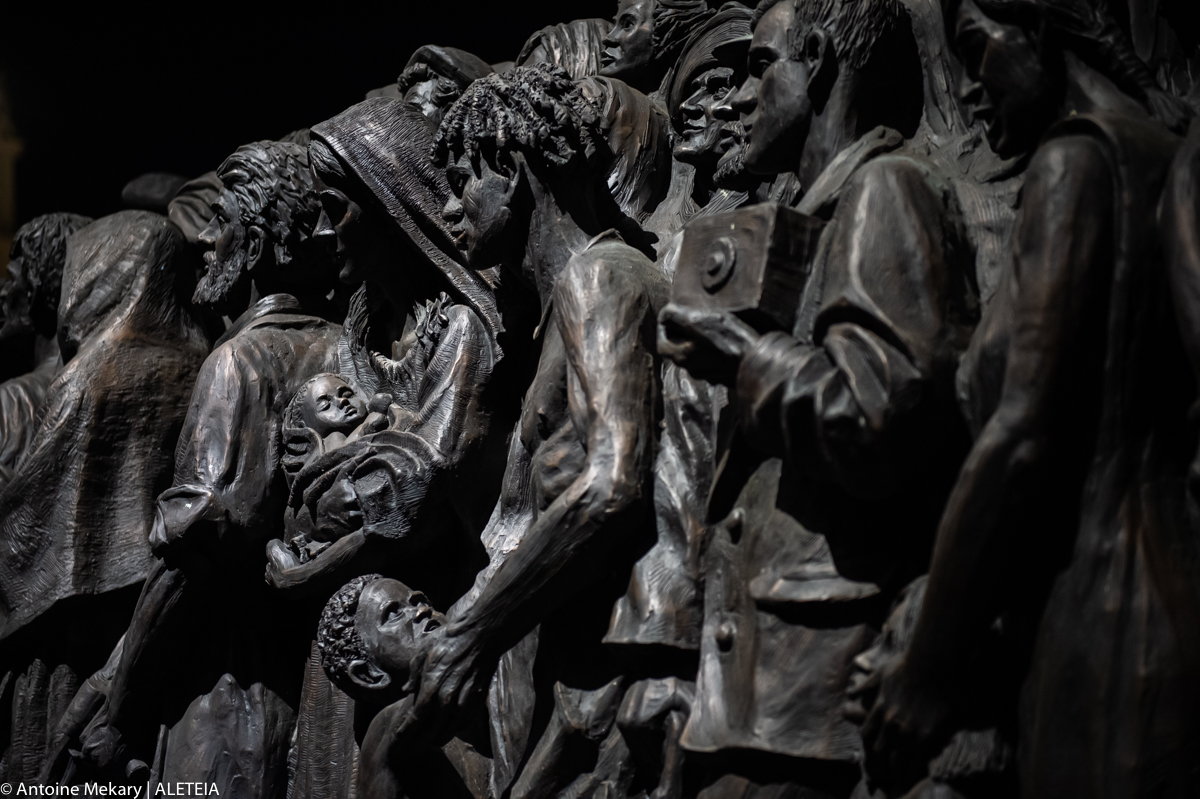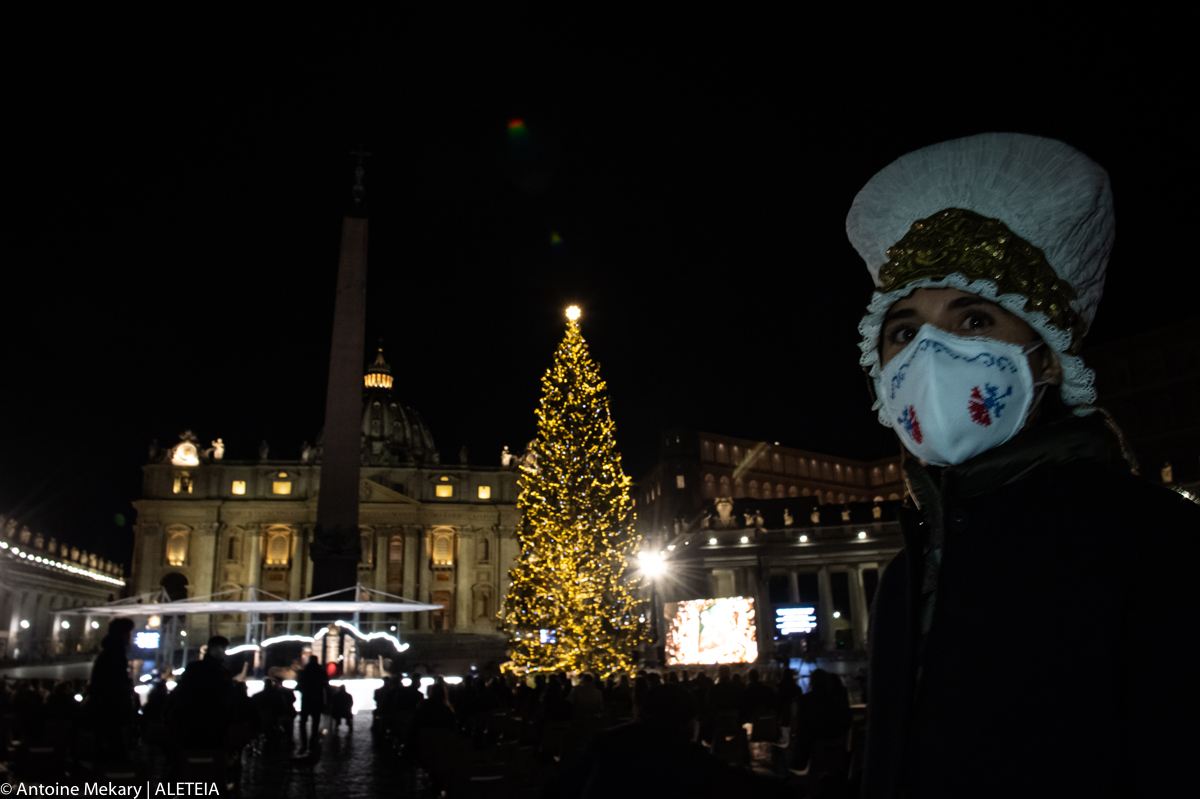
“The feast of Christmas reminds us that Jesus is our peace, our joy, our strength, our comfort.” Those were Pope Francis words on Friday morning to a delegation who presented this year’s Christmas Tree and Nativity scene to the Vatican.
The majestic spruce tree comes from the forests of Kočevje, a town on the Rinža river in Slovenia, while the ceramic crib has been donated by the Italian town of Castelli, in Italy’s Abruzzo region.
The Pope said these “icons of Christmas” are more than ever “a sign of hope for the people of Rome and for those pilgrims who will have the opportunity to come and admire them.”
The tree and Nativity scene help to create a “favorable Christmas atmosphere for living in faith the mystery of the Redeemer’s Birth,” he said.
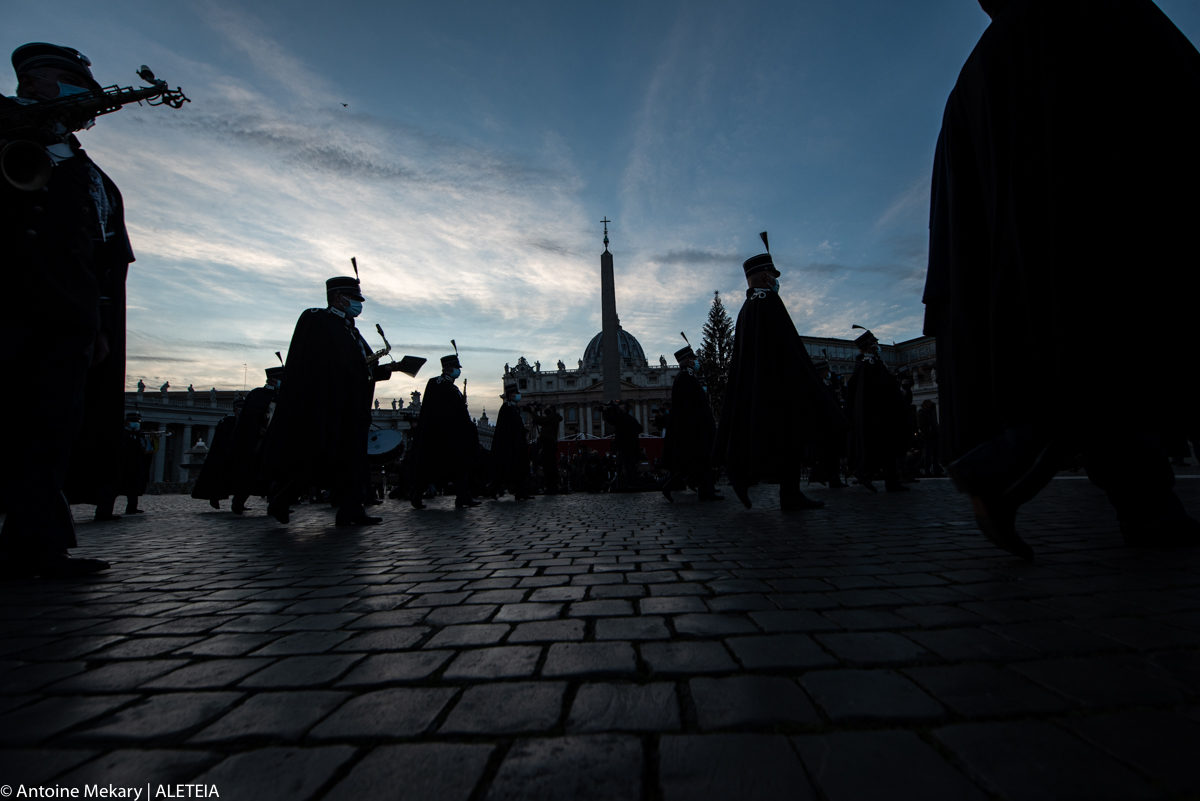
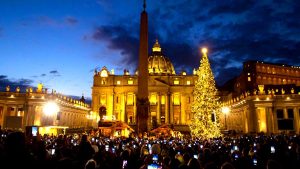
Read more:
Vatican Nativity scene to feature figurines from the 1960s and 70s
Humility of the Holy Family
Pope Francis noted that when we contemplate the Holy Family, “we are attracted by their disarming humility.” He went on to say that there is no room for them, not even a small room, yet “they keep vigil.”
Mary “keeps everything in her heart,” while Joseph “looks for a place for her and the Child who is about to be born.”
In order to receive the gifts of peace, joy, strength, and comfort, said the Pope, “we need to feel small, poor, and humble like the characters in the crib.”
Highlighting the difficulties people are facing this Christmas in particular, Pope Francis stressed that “in the midst of the suffering of the pandemic, Jesus, small and helpless, is the ‘Sign’ that God gives to the world.”
Concluding his greeting, the Pope referred to his visit to the Italian town of Greccio last year where he signed his Apostolic Letter, Admirabile signum, dedicated to the Christmas crib. “It will do us good to re-read it in these days,” he said.
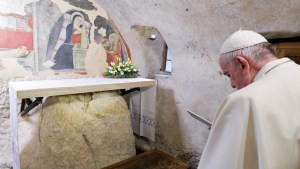
Read more:
Pope Francis points to St. Francis at spot of the first Nativity scene, where Baby Jesus appeared
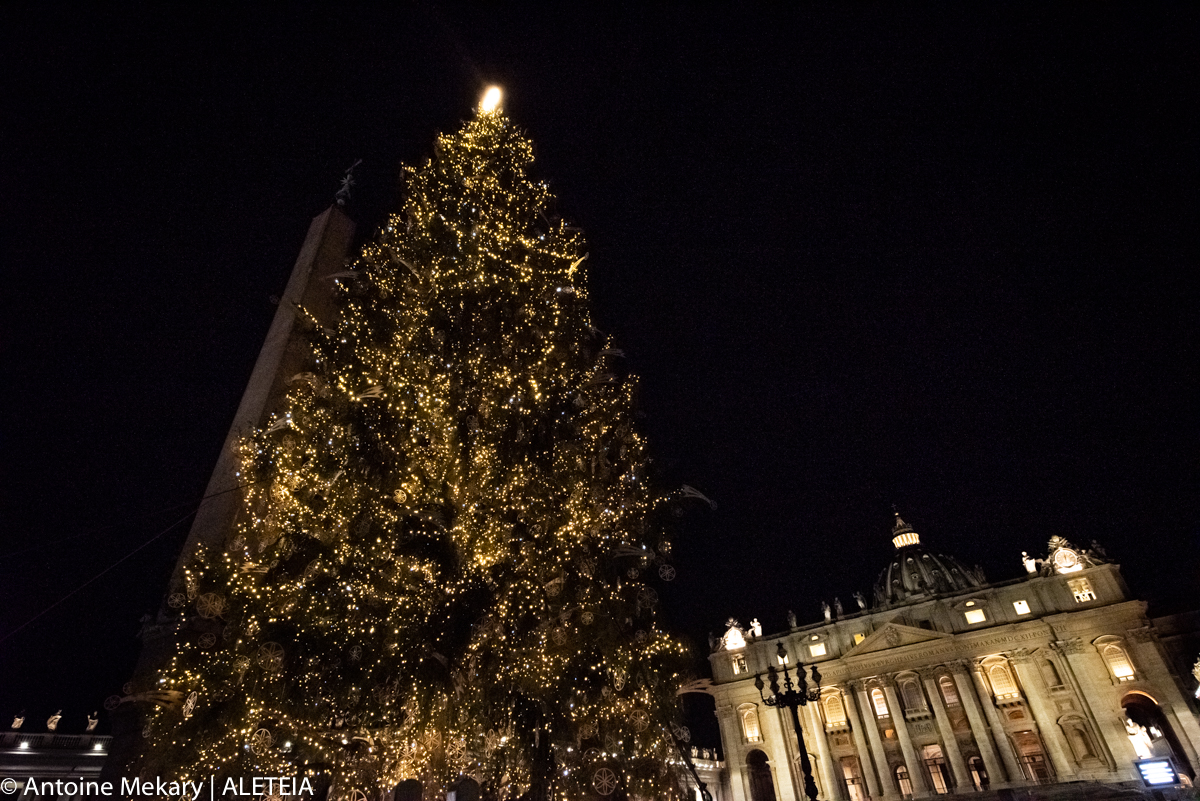
Angels
As part of the lighting ceremony, a special light was cast on the sculpture by Timothy Schmalz, called “Angels Unawares.” The sculpture depicts all types of people through the centuries who have been forced to flee their homelands, all crowded into one boat. Angel wings stretch up from the middle of the sculpture, in a reference to Hebrews 13:2: “Do not neglect to show hospitality to strangers, for by doing that some have entertained angels without knowing it.”
Mary and Joseph with the tiny Jesus are also among the migrants, fleeing from Herod.
